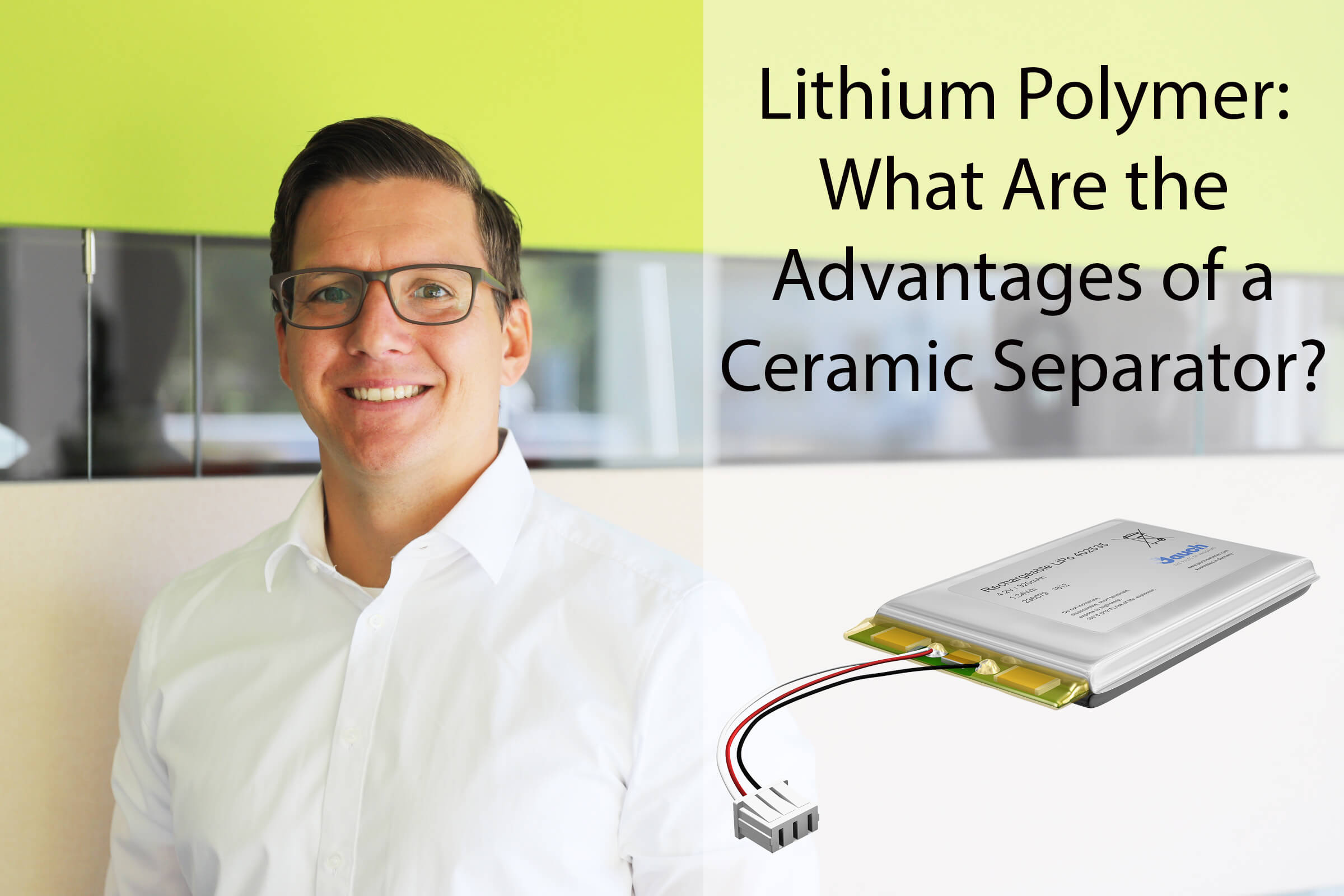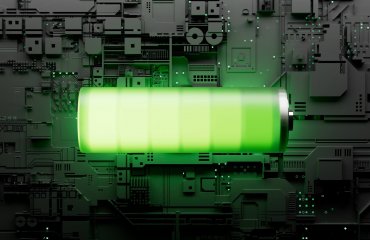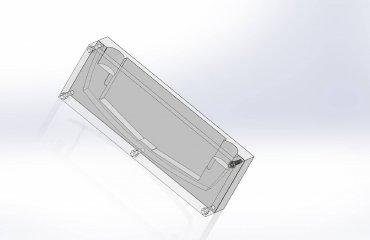
Whether you speak of lead-acid, alkaline or lithium batteries, none of them can work without a separator which parts the positively and negatively charged electrodes. The separator prevents direct contact between the two poles and thus avoids a short circuit of the battery. It is therefore considered the essential safety feature of a cell.
Even the very first cell designed by Alessandro Volta in the year 1800 had this concept implemented. While Volta relied on cardboard and leather, modern lithium polymer batteries use ultra-thin plastic films made of polyethylene (PE) or polypropylene (PP). These films are strong enough to separate the electrodes of the battery from each other, but at the same time offer microscopically small pores, thus allowing ion exchange between the electrodes so current can flow.
Separators Made of Microporous Plastic
Polyethylene and polypropylene are flexible, easy to process and have very good electrochemical properties, all ideal conditions for use in lithium polymer batteries. There is one weakness to these durable materials, and that weakness is heat. At a temperature of around 120 degrees Celsius, the plastic begins to melt and the pores close. The ion exchange comes to a standstill and the power supply is cut off.
This “shutdown” is intended to prevent a further rise in temperature and helps the cell to maintain its safe properties. In some cases, this attempt does not succeed and the temperature can continue to rise. If this is the case, the plastic separator melts completely; resulting in contacting electrodes, and thus dangerous short circuits.
Heat Resistance Thanks to Ceramic Separators
To increase the cell safety, the separators of Jauch’s lithium polymer batteries are additionally coated in ceramic. This coating adds stability and extreme heat protection. The ceramic coated separator has been tested to withstand temperatures of up to 180 degrees Celsius. In addition, the use of ceramic separators reduces the self-discharge rate of the battery and has a positive effect on its service life. The ceramic coating is also resistant to chemicals and chemical reactions inside the cell.
Thanks to the special, intrinsically safe separators, lithium polymer batteries from Jauch are in high demand, especially in the field of medical technology. Extremely strict regulations apply to the safety of the power supply in this industry. Jauch batteries can meet these requirements – not least because of their ceramic separator.
An overview of the complete Jauch-portfolio of flexible and high-performing lithium-polymer batteries can be found here. If you require detailed information, just give us a call or take a look at our in-depth whitepapers.


 Deutsch
Deutsch 



